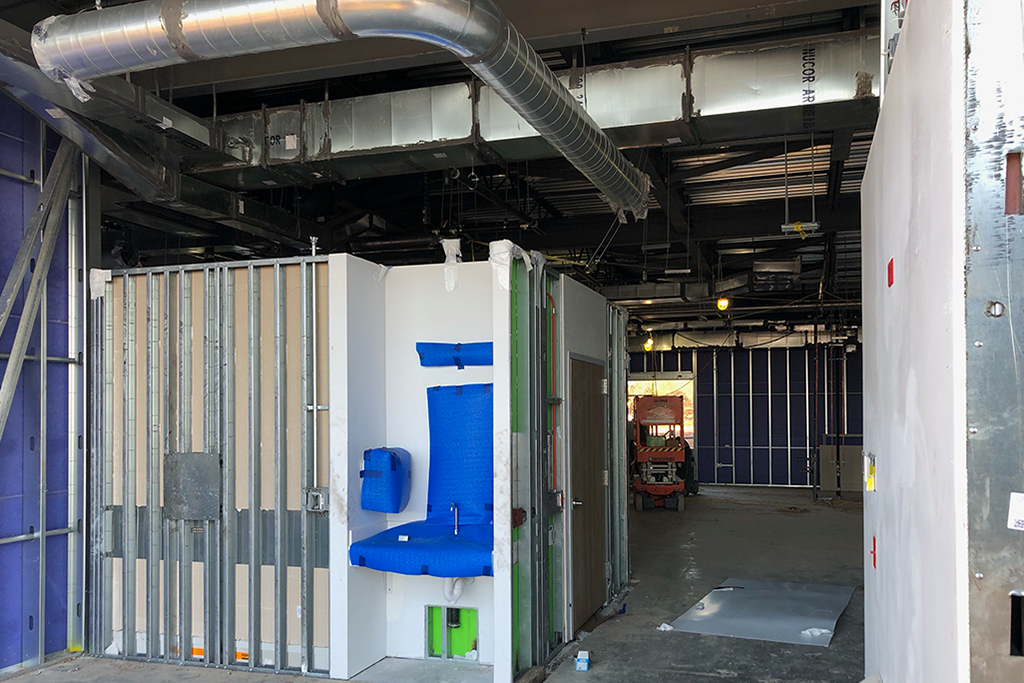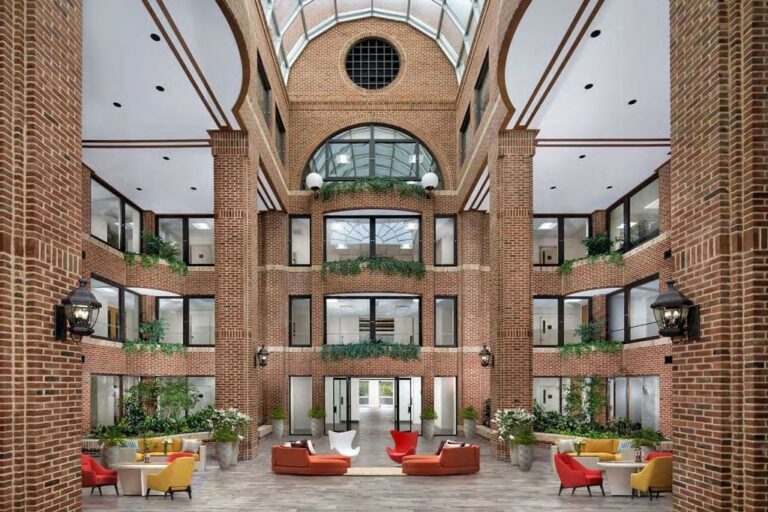
In the past year, we’ve written about modular construction half a dozen times. That’s because, we believe, our industry is heading more and more towards adopting the building method across multiple sectors. Since 2019, we’ve seen a significant increase in interest from our clients into the use of modular construction and are actively using the method on multiple current projects. We have some great resources from our modular and lean construction experts on factors that make a project right for modular construction and ways the method can help overcome challenges like labor shortages or tight schedules. But in this piece, I’d like to focus on why healthcare and modular construction are a match made in heaven. Ok, that may be a little dramatic — but the fact is the benefits that modular building can deliver align closely with several of the most critical components of healthcare construction. I’m going to focus on the top 3: speed to market, quality control, and patient experience.
1. Speed to Market
For our healthcare clients, patient safety and experience is the top priority on every project. That’s a given. But after that, speed to market is critical for healthcare projects. If you’re building a new bed tower, your client already has a need for more beds and needs the new rooms as soon as possible. If you’re renovating an active facility, you need construction to be as efficient and fast as possible to reduce the impact on your operation. With modular construction, we can begin building entire bathrooms, head walls, patient rooms, above ceiling MEP utilities, even building skin components off site while the field team is just beginning to break ground. By the time we have poured the concrete foundation, the building components can be completed and delivered to the job site just in time for installation. That use of modular construction can eliminate weeks from the schedule and significantly increase our ability to deliver projects faster.
2. Quality Control
Hospitals and their supporting medical facilities and offices are made up of complex systems. Take medical gasses for example, the design and installation of these life-saving utilities has to be precise and meet specific code requirements. In a traditional construction delivery method, a trade partner has to install the gas lines into walls on an active job site. Even our expert healthcare builders can’t keep an active job site completely free of dust and debris. Not to mention the spaces are tighter and there is active work and distractions all around. With modular construction, we can build the wall off site, away from the building where it will be installed. Our trade partners can put the medical gas systems into the wall in a clean, controlled environment where they work in assembly lines at eye level instead of standing on ladders. Every factor you can control allows you to increase the quality assurance of that product. We’re able to deliver entire sections of a hospital to a job site with the confidence we’ve controlled the quality off site every step of the way.
3. Patient and Staff Experience
Whether it’s the renovation of an existing facility or a replacement hospital on the current building’s campus, healthcare construction projects can interfere with the daily lives of everyone who is being treated or works there. The work requires traffic control, parking changes, infection control processes, constant clean up, and often requires the project team to work during non-business hours to avoid negatively impacting patient experience. Our teams have a job to do, but we have to always ensure our work doesn’t prevent the doctors, nurses, and hospital staff from doing their jobs. With modular construction, our teams are working concurrently on multiple sites to bring the finished building together. As mentioned above, that can greatly reduce the timeline of a project. The less time we spend on site building or working, the less impact we have on the hospital’s operation and their patients.
We’ve been implementing lean construction practices like prefabrication into healthcare projects for years because of the value it delivers in schedule, quality, and even budget. Modular construction is the next step, delivering even greater value in all those areas and more. Our healthcare clients are engaging us to apply this practice now on projects to achieve faster speed to market, improved quality control, and reduced impact on the experience of their patients and staff. Talk to one of our healthcare construction experts today by clicking here.

